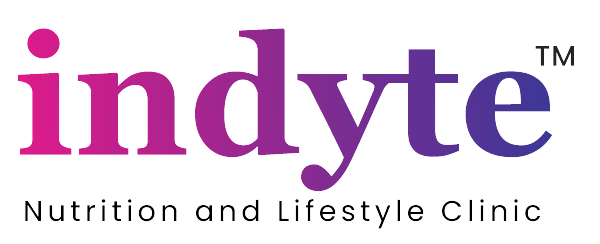- March 27, 2024
- PRIYANKA MAHESHWARI
- Comment: 0
- Cholesterol Diet
Maintaining healthy cholesterol levels is crucial for a happy heart. High cholesterol is a major risk factor for heart disease, the leading cause of death globally, according to the WHO. But the good news is that diet plays a significant role in managing cholesterol levels. Let’s explore how to take charge of your heart health with a delicious and effective diet plan.
Understanding Cholesterol and the Power of Diet
Cholesterol is a waxy substance found in your blood. There are two main types: LDL (“bad”) cholesterol and HDL (“good”) cholesterol. LDL cholesterol builds up in your arteries, increasing the risk of heart blockage and heart attack. Conversely, HDL cholesterol helps remove LDL cholesterol from your arteries, promoting heart health.
Diet significantly impacts cholesterol levels. Studies published by the American Heart Association (AHA) have shown that following a heart-healthy diet rich in specific foods can effectively lower LDL cholesterol and raise HDL cholesterol.
Dietary Strategies to Control Cholesterol
-
Embrace the “Good” Fats, Limit the “Bad” Ones:
-
-
- Focus on unsaturated fats: These “good” fats, found in sources like avocados, olive oil, and fatty fish (salmon, tuna), can help lower LDL cholesterol and raise HDL cholesterol. Enjoy a daily serving of these heart-healthy fats, perhaps using olive oil for salad dressing or incorporating avocado slices into your lunch.
- Minimize saturated and trans fats: These “bad” fats, found in fried foods, processed meats, and commercially baked goods, can increase LDL cholesterol. Limit fried restaurant meals, opt for lean cuts of meat, and choose whole-wheat bread instead of processed options.
-
-
Fiber Up for Lower Cholesterol:
-
-
- Soluble and insoluble fiber help reduce cholesterol absorption in the intestines. Soluble fiber, found in fruits (apples, berries), vegetables (oatmeal, Brussels sprouts), and legumes (beans, lentils), forms a gel-like substance that traps cholesterol for elimination. Aim for at least 25-35 grams of fiber daily. Start your day with a fiber-rich oatmeal breakfast topped with berries, or add a side of Brussels sprouts to your dinner.
-
-
Plant-Based Protein Power:
-
-
- Studies published in the Journal of the American College of Cardiology highlight the benefits of plant-based protein sources like beans, lentils, and tofu for lowering LDL cholesterol compared to red meat. Incorporate these delicious alternatives into your meals. For example, try a lentil soup for lunch or a tofu scramble for breakfast.
-
-
Mindful Cholesterol Intake:
-
-
- While dietary cholesterol plays a less significant role than saturated and trans fats, limiting foods high in cholesterol, like egg yolks, organ meats (liver), and processed meats, is still wise. Enjoy eggs in moderation, perhaps limiting them to 2-3 whole eggs per week.
-
-
Portion Control is Key:
-
- Regardless of the food choices, portion control is essential for managing weight and overall heart health. Use measuring cups and spoons to ensure appropriate portion sizes, and practice mindful eating by savoring each bite.
Sample Cholesterol-Control Diet Plan
Here’s a sample one-day meal plan to illustrate how delicious and balanced a diet plan for cholesterol patient can be:
- Breakfast: Oatmeal with berries and a sprinkle of almonds (fiber, good fats)
- Lunch: Grilled salmon salad with olive oil dressing and a whole-wheat roll (good fats, fiber)
- Dinner: Lentil soup with a whole-wheat bread side (plant-based protein, fiber)
- Snacks: Apple slices with almond butter (fiber, good fats) or carrot sticks with hummus (fiber)
Remember, this is just a sample. You can create a personalized and enjoyable plan based on your preferences.
Additional Tips and Considerations
- Regular exercise, alongside a healthy diet, is vital for heart health. Aim for at least 150 minutes of moderate-intensity exercise per week, as recommended by the CDC.
- Smoking cessation and stress management can also contribute to improved heart health.
Taking Charge of Your Heart Health
Consulting a doctor or registered dietitian is crucial for personalized dietary advice and monitoring cholesterol levels. They can create a plan tailored to your specific needs and health conditions.
Empower Yourself with Knowledge and Action
By incorporating these dietary strategies and lifestyle modifications, you can take charge of your heart health and lower your cholesterol. A cholesterol-control diet doesn’t have to be bland or restrictive. With creativity and knowledge, you can enjoy delicious and nutritious meals that support your well-being.
Remember, you are not alone on this journey to a healthier heart. With the proper knowledge and support, you can make positive changes that will benefit you for years to come.

